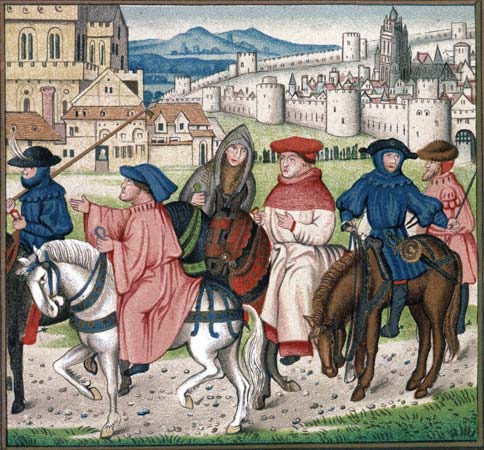Psalm 63:1-8
Pilgrimages are usually defined as journeys to a sacred place as an act of religious devotion. Sometimes, when we’re experiencing what we perceive as spiritual decline, we think a pilgrimage will be just what we need. We may think that by going to a holy place, we will reconnect with God in a meaningful way and spiritual fervor will be rekindled. I can identify with this. I figure that if I am part of the problem, I can also be a part of the solution and God will be my helper.
But when God sends us on a pilgrimage, his idea of a holy place is much different than ours. God’s idea of a pilgrimage is a trip into the wilderness. It is a trip into the dark places of loss and loneliness, a tarnished reputation and terrors smiting the conscience. Just consider David who wrote Psalm 63. His son, Absalom, along with many other leaders in Israel had betrayed David. He left Jerusalem weeping with his head covered in shame. But perhaps the heaviest blow was the fulfillment of the prophet Nathan’s words, “Out of your own household I am going to bring calamity upon you.”
Everything that was happening to David served to remind him of the skeletons from his past. Self-sufficiency. Pride. Adultery and murder. So the heading from Psalm 63 reads, “Of David. When he was in the Desert of Judah.” But that was God’s holy place for David and the wilderness is God’s holy place for you and me. The wilderness is God’s holy place where we come to terms with our un-holiness. Where our souls are parched and dried because we have lost all of the drinks with which we were trying to cure them.
But the wilderness is also God’s holy place where he quenches us with Living Water. For God himself went on a pilgrimage into the wilderness. God himself went on a trip into the dark places of loss and loneliness, a tarnished reputation and terrors smiting the conscience. As Saint John tells us, “No one has ever seen God, but God the one and only, who is at the Father’s side, has made him known.” King David may have written Psalm 63, but the Lord Jesus fulfilled it.
In the person of Christ, we see that God doesn’t run away from the dirty and unclean but rather runs to them with words of pardon and peace. In the person of Christ, we see that God doesn’t rekindle spiritual life but creates a new one. In the person of Christ, we see that God doesn’t try to hide the skeletons in our closet but becomes them on the cross. By his wounds, we are healed. For whoever drinks this water will never thirst again.
When we lived in Florida, we had a friend who always kept hundreds of gallons of water in his house during hurricane season. He wanted to be prepared for an emergency because clean water is one of the most basic necessities to human survival. Unfortunately, hundreds of gallons of water would have disappeared pretty quickly if anything drastic really did happen.
The resurrected Christ is different. The gift of water which Jesus pours out from the Father’s right hand is like a well that never dries up. In fact, in the Nicene Creed, we call that well the Holy Spirit, “who proceeds from the Father and the Son.” The Holy Spirit is the gift of which Jesus spoke in John 4, “Indeed, the water I give him will become in him a spring of water welling up to eternal life.” And because God’s Spirit testifies with ours, we say, “Because your love is better than life, my lips will glorify you” (Ps 63:3).
Ben Zak
For more content like this, check out the podcast, blog posts, and devotions at www.LetTheBirdFly.com.
You can listen to our latest episode here. You can find our latest installment in the Wingin’ It series on Luther here.

